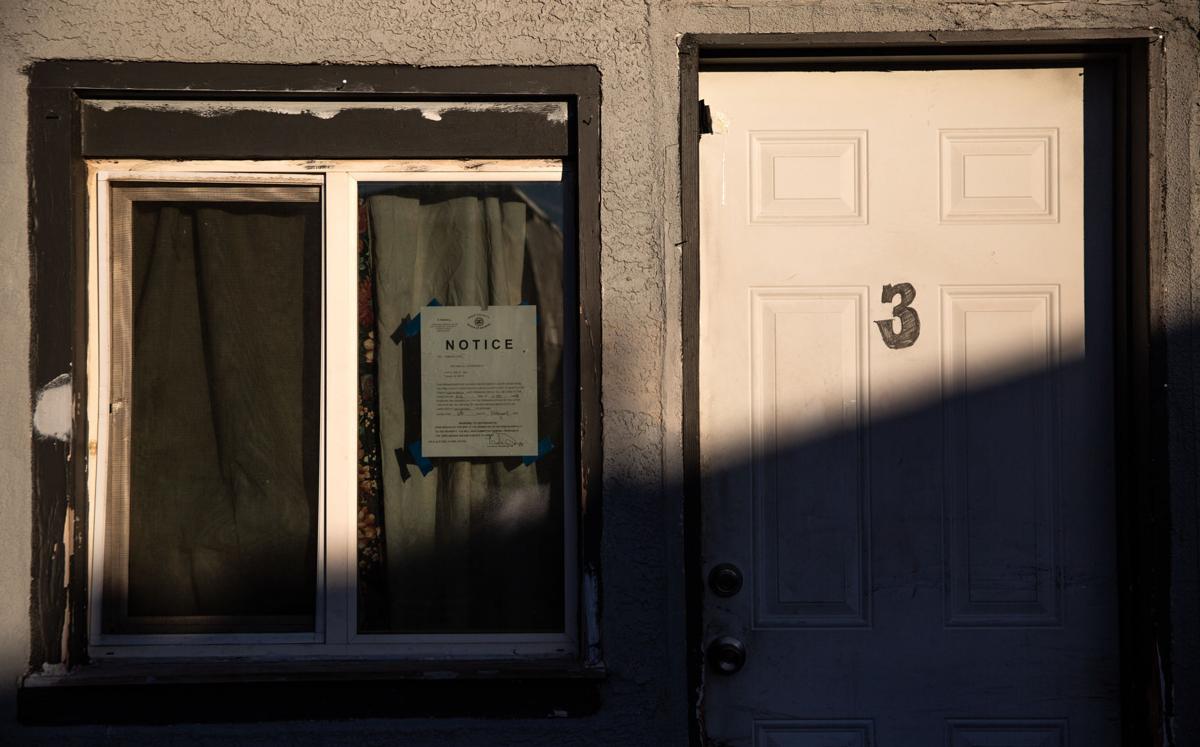Tucson recently dedicated over $36 million of American Rescue Plan Act funds to address residents’ need for affordable housing, but experts fear the city’s rules on who can receive that money may limit its impact.
City officials divided the ARPA funds — part of a national COVID-19 stimulus effort — among three major categories in Tucson’s spending plan. All of it is specifically aimed at serving residents with the “most extreme needs,” such as those who are in immediate danger of becoming homeless.
Council members approved the ARPA spending plan in November, and it is expected to do big things for those who are eligible to receive the money. It will fund housing vouchers for over 200 new families, for example, and keep alive a program that has provided rental assistance to over 6,000 people since March.
The plan still falls short for a large group of residents who need help, according to experts who said it excludes those who are not extremely poor but are still struggling to make ends meet as housing prices skyrocket.
“We have to understand there’s a whole continuum of needs from emergency shelter to home ownership, long term rentals, supportive housing. Meeting the needs of the community is really important along that entire continuum,” said T. Vanhook, the CEO of Habitat for Humanity Tucson.
Tucson’s housing shortage dates back to at least the Great Recession, city data shows. The long-running problem continues to make it a challenge for typical residents to keep a roof over their heads without breaking the bank.
Housing costs are increasing faster than income, for instance. In just the past two years, rent and home values have increased 7% and 15% faster than median household incomes.
Tucson’s decision to exclude typical residents in its spending plan rather than take a broader approach to the housing crisis may also impact the strategy’s efficiency, according to experts.
Residents with extreme needs can be the hardest to house and get on the track of financial stability, said Maryann Beerling, the CEO of the non-profit organization Compass Affordable Housing that has partnered with Tucson to distribute some of the ARPA funds.
The crux of the issue is that using ARPA funds to target only those individuals could cause the city to spend more time and money to house a smaller number of people overall, she said.
“There’s a large population of people who can get employment quicker and be stably housed quicker and be able to participate in our economic society quicker who we’re not able to serve right now,” Beerling said. “It would be nice to mix it up and do both, but right now that’s not what’s happening in Tucson.”
Part of Tucson’s ARPA spending plan is not entirely finalized, however. The federal government still needs to approve one of the major spending categories, which is funded at $12.7 million in the plan, before it can be distributed because it’s part of a federally run program.
Mayor Regina Romero also suggested that the plan would continue to evolve in the coming months, so there could still be time for the city to broaden its criteria for who can receive ARPA assistance.
“There’s lots of work we can do, lots of incredible ideas,” she said. “Hopefully we can add it to the strategy and keep pushing the envelope forward.”





